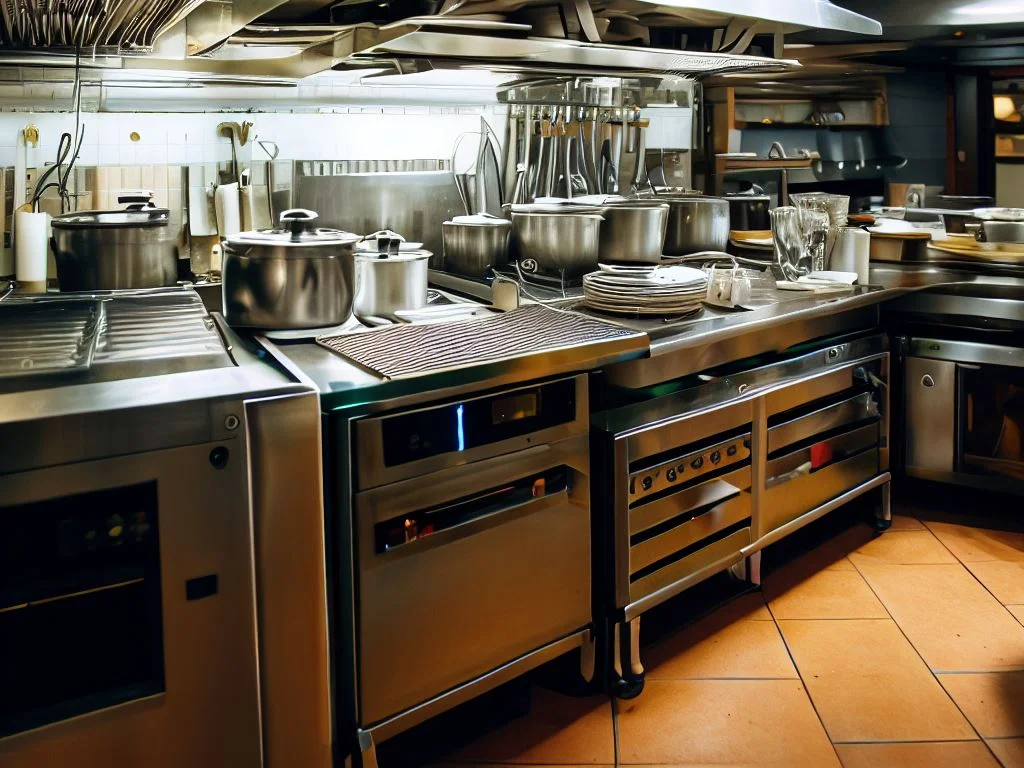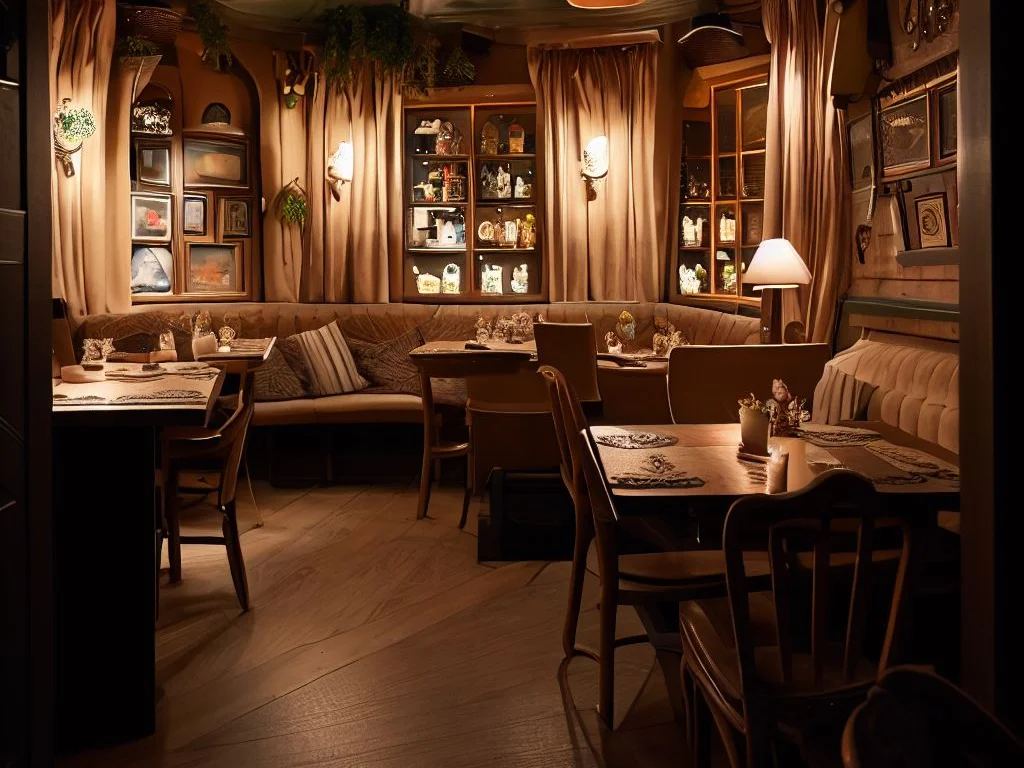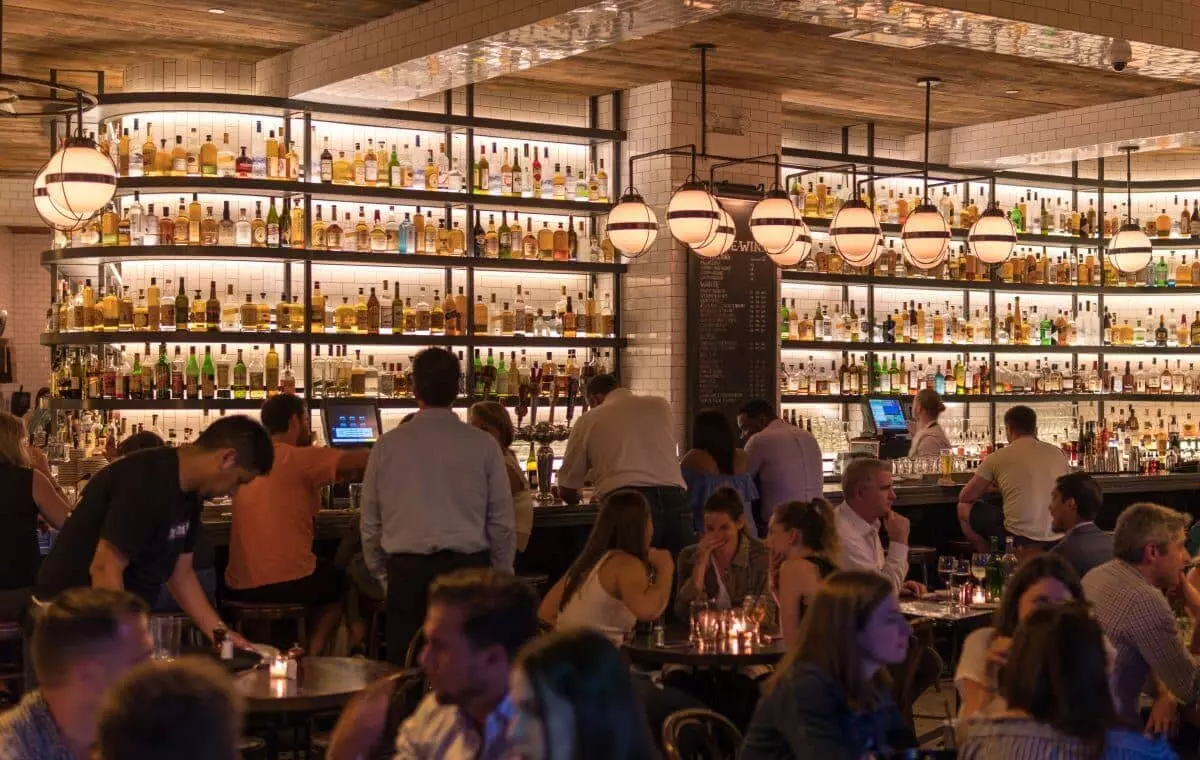Evaluating a Potential Restaurant Purchase

Joining the restaurant business by purchasing an existing restaurant is both exciting and challenging: you’re ready and raring to get started running a successful business, but you also need to be sure that your new purchase is both worth the selling price and that you’ll be able to make a good profit.
Numerous factors go into the business buying process, from ascertaining business value to performing due diligence so that you’re aware of potential concerns. In this guide, we’ll guide aspiring restaurant owners through the complexities of evaluating a potential restaurant purchase, ensuring that you’re well-equipped to provide a competitive bid once you’ve found the perfect business to buy.
Understanding Restaurant Valuation
To begin, you must understand how to value a restaurant business; in other words, you need to identify whether the sales price matches what the business is actually worth.

Approaches to Valuation
There are numerous different restaurant valuation methods, each of which may prove immensely helpful depending on your
Earnings multiplier method: This evaluation method looks at the profitability a business generates over a period of time; this can often be a more objective analysis of a business’s growth that gives a more holistic perspective than just looking at one or two months.
Asset-based valuation: Asset valuation takes a look at the assets and liabilities of commercial businesses, which identifies the current market valuation of the company’s assets like equipment, property, furniture, and intellectual property, then deducts the liabilities like real estate taxes, maintenance costs, loans, and other expenses.
Comparable sales method: This method, also known as the market valuation method, considers the sales price of other restaurants in order to determine a restaurant’s valuation. When utilizing this method, it’s important to try to compare numerous properties of the same restaurant type. For example, a full-service restaurant is going to cost more than a coffee shop in the same area because it has more assets.

Discounted cash flow method: For DCF, you analyzed the expected future annual revenue to identify its current valuation while including an amortization expense. This is similar to the discretionary earnings method, best used for small businesses with a sole proprietorship.
The Role of Intangible Assets
In addition to these more tangible assets that help value a restaurant business, other factors can influence the overall valuation, which include brand reputation, an established customer base, and ingrained operational processes.
A successful restaurant with a strong track record for quality service is going to be worth more than smaller restaurants with no loyal fanbase, meaning you’ll have to spend time rehabbing the business’s reputation in addition to any repairs or improvements.
Similarly, a restaurant already running like a well-oiled machine will allow you to dive in and make only minor adjustments, while one with chaotic or non-existent processes requires you to spend time developing protocols and retraining existing employees before you can start making a profit.
Consulting Experts
When you value a restaurant business, you must seek help from professionals who have experience in analyzing all the factors involved in a business’s success rather than attempting to do it all on your own. A restaurant realty company can be a great asset here, as they can direct you to appropriate resources like real estate lawyers and accountants who will help you analyze the company’s guaranteed worth.
Key Considerations in Evaluating a Restaurant

There are several important factors you must take into consideration when identifying whether a business is suitable for your needs, including the following elements.
Location
A strong location means everything to a restaurant business, relying on good foot traffic and easy access to make money.
For example, if there’s a sizeable residential population built up around your location, whether that is apartment buildings or single-family houses, this will make it much easier to attract a new customer base over time. A restaurant in an office building might not always get as much foot traffic depending on its offerings, while one in a multi-use retail building is more likely to get plenty of customers.
You should also consider the existing lease terms and identify whether they are favorable, as well as whether you can renegotiate it in the future.
Competition

How many other restaurants are in the vicinity that might siphon away potential customers? If the market is highly saturated, that counts against the restaurant’s favor. You should also consider how much you’ll be able to differentiate your business from your competition through unique offerings.
Financials
Here, you’ll need to look at various factors, including sales trends, debt service, operating expenses, liabilities, and overall cash flow. You may find it very helpful to work with an accountant here, who can present you with a report on the current restaurant’s financial health.
Operational Efficiency
Take a look at how the restaurant operates at the moment: highly qualified staff with a long tenure, as well as great employee training, makes a major difference in how much income you can make over time. You should also take a look at the current vendors and the contracts held with them to identify whether you can expect to have a steady stream of excellent supplies as a new owner.
Assets and Infrastructure

Here, you are thinking about everything that the restaurant business owns: kitchen equipment, furniture, and even lighting and decorations that contribute to the restaurant experience. Get an idea of the total cost of this equipment to identify whether you’re getting a good deal.
You should also consider non-reoccurring expenses here, like leasehold improvements that will help the property better suit your needs. If you see that you’ll need immediate renovations, these additional costs should go into your evaluation.
Due Diligence: Going Beyond Surface-Level Information
This isn’t everything that you’ll need to analyze before signing a contract: you also need to look at external factors that will impact your net income – as well as the ease in wooing potential investors to help fund your future.
Licenses and Permits

Every city requires different licenses and permits, so you need to know which ones are applicable to your business and ensure that not only are they valid, but they can also be transferred to you upon sale.
Customer Reviews and Reputation
Investigate the current customer base and how they feel about the existing business. Do they love the food but hate the restaurant operators? Are the current owners friendly but the place is run down? This can all impact how you move forward, as well as if you believe the company is beyond repair and not worth the sales price.
Consider potential PR issues also, such as any legal trouble the company has been in previously. You might also face resistance as a newcomer if the business is well-established and family-owned.

Vendor and Lease Agreements
While you’ve established the quality of vendors and leases, you now need to look carefully at the contracts and lease agreements to see exactly how the terms will impact your operating expenses and overall profitability. Long-term leases or agreements might prove a liability in the future, while short ones may indicate a lack of confidence in the vendor or landlord.
Intellectual Property
Here, you’ll need to consider branding: logos, icons, slogans, and other components of a business’s overall identity. These should all be transferred to you upon sale, with none left out that may harm your reputation in the community.
While not always applicable, many restaurants have proprietary processes or recipes; this is particularly true for restaurant franchises, which are part of a large organization with their own trade secrets. Ensure that you’ll have access to all of these and do not have to undergo any further legal processes to take care of this.

Environmental Concerns
Assess the location for any health and safety concerns, preferably by obtaining records for pest control requests and building assessments. Restaurants require the utmost in food safety controls, so additional maintenance costs related to pest extermination can not only harm your bottom line but they can also get you into trouble with the authorities.
Employee Contracts and Benefits
Most restaurant owners do not start out with all-new staff as soon as they take over as chief executive officer; instead, they identify well-performing employees, perform supplemental hiring, and let underperformers go when necessary.
As such, you need to review both the formal and informal obligations to your employees by analyzing existing contracts and speaking to the staff about their general workflow. Long-term employees will chafe if you get rid of their old perks, such as free coffee during work hours, and you may find it difficult to retain them.
While doing so, also consider any difficulties that may arise in transitioning current employees to your ownership, determining what additional training may be required and what this will cost you.

Negotiating the Purchase
Once you have analyzed these and other factors, it’s time to determine the purchase price. Come to the table with all of your due diligence, and be prepared to negotiate based on the evidence you have gathered. Focus on facts rather than feeling, and follow up every assertion with statistics and hard numbers.
A well-drafted purchase agreement is a must, as this protects both you and the seller from any liabilities. You will likely find it helpful to rely on legal counsel to review all the terms and conditions, as well as oversee the process to ensure an overall smooth transaction. Working with both a lawyer and a restaurant realty company throughout can be a major help so that you’re sure you’re getting a fair deal.

Conclusion
It’s easy to get starry-eyed when you find a beautiful restaurant, but it’s important to be meticulous, patient, and consultative throughout the purchase process. Thoroughly evaluate the deal and get second opinions from professionals with experience in how to value a restaurant.
Don’t skimp on due diligence; see it as a way to get a better idea of what you can expect and what this potential business is worth. With patience and thorough research, you can find the restaurant of your dreams at a fair price.
References and Further Reading
“Want to Buy a Restaurant? Here’s How to Measure Its Value:” This Q&A from Restaurant Business provides a great look into all the factors involved in business valuation.
“How to Calculate Your Business’s Value: Here’s What Investors Are Looking For:” While more focused on sellers than buyers, this Fast Company article breaks down all the components of a business’s value.

“How to Calculate the Selling Price for a Business:” Chron breaks down the different valuation methods you must understand when assessing a business.
“How to Do Due Diligence When Buying a Business:” BDC lists the factors that should go into your due diligence.
“Buying a Business: Due Diligence Checklist:” FindLaw provides a helpful checklist to guide your due diligence process.
Frequently Asked Questions
Which Valuation Method Is the Best Option?
All of the restaurant valuation methods can be incredibly helpful, but some may not exactly apply to your circumstances. In many instances, it’s best to apply more than one market valuation method, then take the average of the different sums.
What Are Special Considerations for Franchisees?
Buying a franchise business can be slightly more difficult, as you need to ensure that you follow any standardized procedures in place from the overarching company. In this instance, it’s best to reach out to a lawyer in the larger company itself to get assistance and further details, as every company is different.

What Are Some Tips for Negotiation?
Negotiation can be daunting, but you shouldn’t be afraid. Here are some helpful tips for how to negotiate:
- Don’t rush in before you have the facts.
- Negotiation can be emotional: affirm the other party’s feelings.
- Provide a set price and “bottom line” you won’t go below.
- Refer back to your research when necessary.
- Be a good listener, and don’t assume malintent.
- Don’t overnegotiate: when you feel it’s fair, end it there.
The Business Looks Good on Paper, but Something Feels Off. What Should I Do?
If you have creeping suspicions that all is not well, you may find it helpful to talk to well-educated residents in the area who have an insider look. They may be able to give you information that doesn’t necessarily show up on paper, such as troublesome nepotism or an undocumented pest issue.
You should also take a second look at any records and reports you have, as well as consult with a lawyer who can more thoroughly examine the documents to find inconsistencies.







